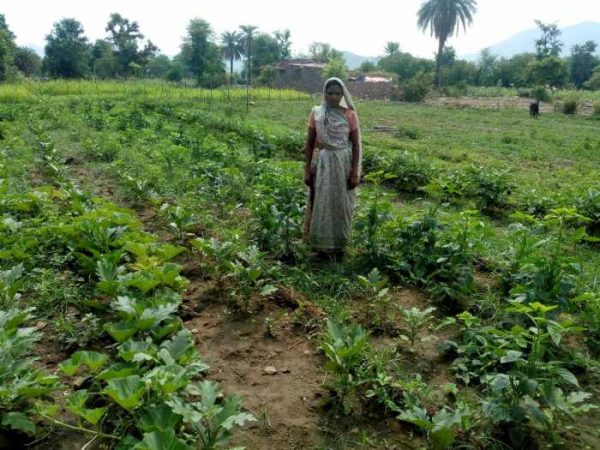
‘Project to be expanded to 500 farmers in 72 villages ’
Udaipur : 90 kilometers away from the Udaipur district headquarters, are some 20 villages in remote patches of Jhadol and Phalasiya panchayat samitis, a part of the Wakal river basin. The terrains are tough and hilly and houses are mostly made of mud with Kelu roofs but some of the farms hold pleasant surprises. Farmers, who once, were dependent highly on monsoon and harvested just one crop in a year, have adopted drip irrigation to reap benefits of crops for commercial purposes.
The drip irrigation project was launched here four years ago by a UK based organization Water Harvest (WH) and NGO Mahan Seva Sansthan working in the area of water conservation. It is a controlled irrigation technique wherein water is allowed to drip slowly to the roots of plants, either from soil surface or buried below the surface, thereby efficiently using water and nutrients. The organization had borne the entire expenses of laying drip systems in the fields.
“Some fifty farmers who laid the drip system in their farms, are now growing vegetables throughout the year and making good profits. While many men in these villages who worked as daily wagers in other states, had to return due to the COVID crisis, these farmers and their families remained unaffected by the pandemic. Seeing them, others are inspired to take up farming and quitting labour jobs” O.P Sharma, country director, WH told Udaipur Kiran.
During the lockdown period alone, i.e. March to June, the cultivators grew 18 thousand kilograms of vegetables and earned 5 lakh 40 thousand rupees. Vegetables like tomato, brinjal, lady finger, cluster beans, chilly, onion, potato, cauliflower, peas and leafy vegetables were grown in plenty.
“The farmers had advantages from the lockdown as villagers feared to go out to procure vegetables from markets that had become super spreaders of the virus and hence they purchased directly from the neighborhood farms” Sharma said. Drip irrigation is gaining popularity as power cuts are frequent in the villages and large areas can be covered through less operation hours of the system. It saves water, electricity, labor cost and avoids flooding in the fields.
“Earlier I used to grow grains and pulses once a year in the season and the rest of the months would migrate to other cities to take up menial labour jobs. But after adopting the drip system, I grow veggies throughout the year. I earned 22 thousand rupees by cultivating green chillies only during the lockdown period” Dhamilal Pargi of Kherad village said. In the next stage, the NGOs are expanding the drip project to 500 more farmers in 72 villages. “To set up the drip irrigation system in a farm measuring 1 bheega, it costs approximately 40 thousand rupees. We are collaborating with the government of Rajasthan which will bear 70 percent of the expense while the remaining would be borne by us” Sharma informed.


